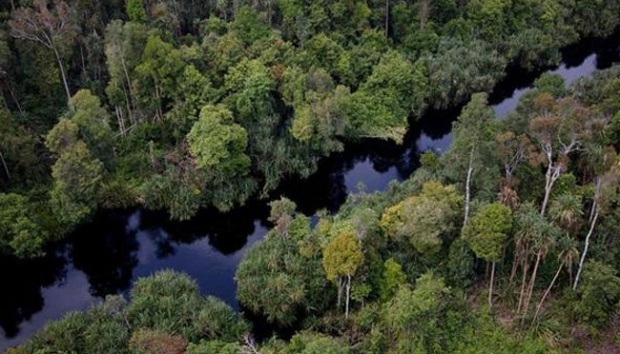Grassroots Initiatives to Better Management of Indonesia`s Forest
14 December 2017 13:54 WIB

TEMPO.CO, Jakarta,
Written by: Nabiha Shahab, a doctorate student at the University of Indonesia.
Indonesia should be proud. For many years, the Indonesian forest sector was a hotbed of illegality and corruption.
It was previously estimated that three quarters of the wood used by the country’s timber industry came from illegal logging and Indonesia’s tropical rainforests were vanishing faster than those of any other country.
This epidemic of illegal deforestation can be traced back to the nationalization of the country’s forests in 1967 by the late President Suharto, which led to a massive growth in the logging industry.
At the turn of this century, the tide began to turn: in 2001 at the first East Asia Ministerial Conference on Forest Law Enforcement and Governance (FLEG), Indonesia committed itself to “intensify efforts… to address forest crime and violations of forest law”, and in 2002 the country signed a memorandum of understanding with the UK government, which laid some of the groundwork for its subsequent agreement with the EU under FLEGT.
But the road towards legality has not been smooth. And serious obstacles remain.
A recent investigation by the Independent Forestry Monitoring Network (JPIK), found that Indonesia’s timber legality system, SVLK or Sistem Verifikasi Legalitas Kayu, is riddled with loopholes and has so far been unable to stop companies from using illegally sourced timber.
JPIK, which works with indigenous people and local communities to uncover illegalities in timber concessions areas, discovered that rogue companies were colluding with corrupt officials to launder illegal timbers into the SVLK system.
Muhammad Kosar, JPIK national coordinator, says: “We found evidence of illegal timber entering the SVLK supply. There are also cases of illegal logging from national parks and we suspect these logs enter the wood processing industries.”
This is especially problematic since once an exporter qualifies for SVLK; they automatically obtain the FLEGT license and can export to the EU without the need for importers to conduct further due diligence checks.
One of the biggest barriers to ending this enduring illegality and corruption is the uncertainty over land ownership Indonesia - including that caused by overlapping maps.
In 2013, Forest Watch Indonesia (FWI) found that the figure for overlapping licenses for forest concessions, industrial forest plantations, and mining areas was 14.7 million hectares.
For forest communities, this confusion can spell disaster. Most indigenous communities in Indonesia have no written record of their customary land. So when their traditional forest areas overlap with mining, timber or palm oil companies’ concessions or even national parks, their legitimate means of existence – and way of life that has often endured for centuries – becomes technically illegal based on national law.
In the early 1990s, the participatory mapping movement emerged from the community of Long Uli in Malinau, North Kalimantan. Today that movement has become national.
In essence, it works like this: community members use a scaled map to depict what they collectively identify as their territory, noting its relevant natural features.
Deny Rahadian, National Coordinator of the Participatory Mapping Network or JKPP, explains: “Mapping is used to confirm the community’s management area. Our main objective is to document the community’s existence in their ancestral land.”
JKPP has mapped around ten million hectares, including nine million hectares of customary land across the country.
As a consequence, indigenous people have been empowered to claim rights to their natural resources and dictate plans for its development. Collaboration between the government and communities has also been cultivated, and community-generated maps have helped inform both the national and local government in its spatial planning.
Another solution to securing tenure rights for forest-dependent communities is social forestry schemes, in which communities living in and around forests are given legal rights to manage them. “The community participatory mapping is also used in identifying and delineating social forestry borders,” adds Rahadian.
These grassroots initiatives show how to resolve the illegalities in Indonesia’s forests that have been caused by land conflicts.
Indonesia has come a long way since the dark days when corruption and forest destruction were all-pervasive. But it has some way to go to before they are truly eradicated.
DISCLAIMER
Articles published in the “Your Views & Stories” section of en.tempo.co website are personal opinions written by third parties, and cannot be related or attributed to en.tempo.co’s official stance.























